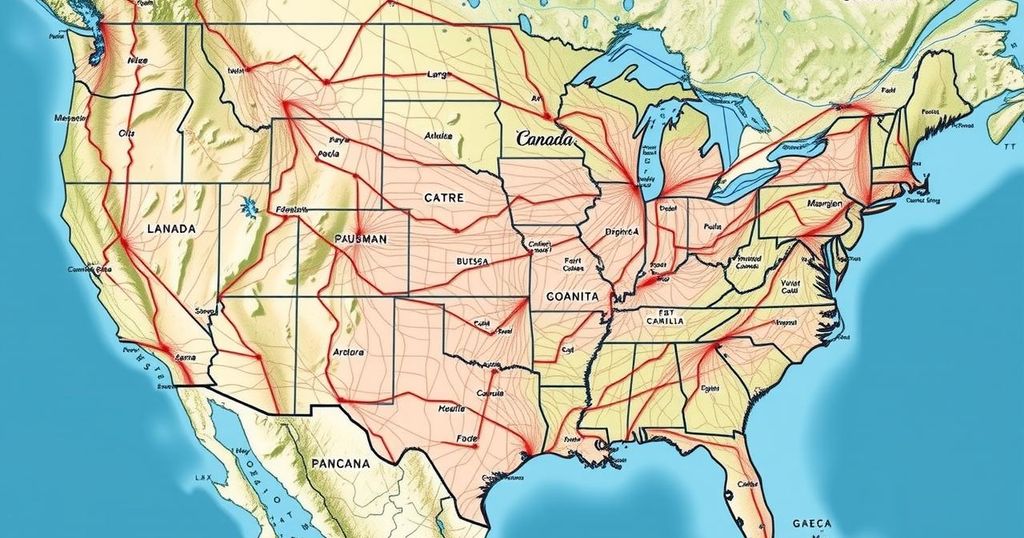Trump Provokes Discussion on Potential U.S. Territorial Expansion in Canada, Panama, and Greenland

Donald Trump has recently suggested the U.S. could incorporate Canada, reclaim the Panama Canal, and pursue Greenland. These statements blend rhetorical flair with serious policy implications, echoing themes of American expansionism. His comments have sparked pushback from the leaders of Panama and Denmark, reaffirming their sovereignty and dismissing Trump’s proposals. The overall discourse indicates a complex interplay of nationalism and foreign policy for the soon-to-be president.
President-elect Donald Trump has expressed provocative ideas surrounding potential U.S. territorial expansion, suggesting the possibility of incorporating Canada as a 51st state, asserting control over the Panama Canal, and revisiting his interest in acquiring Greenland. These comments have raised questions regarding their legitimacy, as they often seem to blend serious policy intentions with rhetorical statements aimed at energizing his supporters and capturing media attention. Trump’s invocation of longstanding nationalistic themes resonates with historical concepts of Manifest Destiny, indicating a desire to extend American influence abroad despite his previous calls for reduced foreign intervention.
During a recent speech, he warned Panama of taking back the Panama Canal unless they reduce fees for U.S. ships while claiming its importance to national security. He reiterated his belief that ownership of Greenland is essential for maintaining U.S. freedom and security. Trump’s comments about Canada appear to be more tongue-in-cheek, possibly intended to provoke Canadian Prime Minister Justin Trudeau after a recent meeting, rather than a serious proposal. These discussions also come amid broader contextual concerns involving U.S.-Mexico relations concerning drug cartels and tariffs.
Trump’s engagement with prominent figures in business and politics has amplified his exposure to various issues, possibly affecting his views on overseas expansions. Responses from leaders in Panama and Denmark have been dismissive, reaffirming the sovereignty of their territories and rejecting any notions of U.S. acquisition.
The notion of U.S. territorial expansion has its roots in the historical doctrine of Manifest Destiny, which celebrated the idea of American sovereignty across North America. Trump’s recent statements reflect a modern interpretation of these sentiments, proposing ideas that would significantly alter the geopolitical landscape. The Panama Canal, having been historically operated by the United States until its transfer to Panama in 1999, stands as a symbol of this sentiment, as do Trump’s comments on Canada and Greenland, which allude to the desire for increased American dominance.
In conclusion, Donald Trump’s recent provocations regarding U.S. territorial expansion provoke significant discourse about America’s role on the international stage. Whether such statements represent sincere ambitions or merely rhetorical strategies remains uncertain. Nevertheless, they echo historical themes of American expansionism while evoking strong responses from the countries involved, emphasizing the delicate balance of international relations in the current political climate.
Original Source: www.cnn.com






